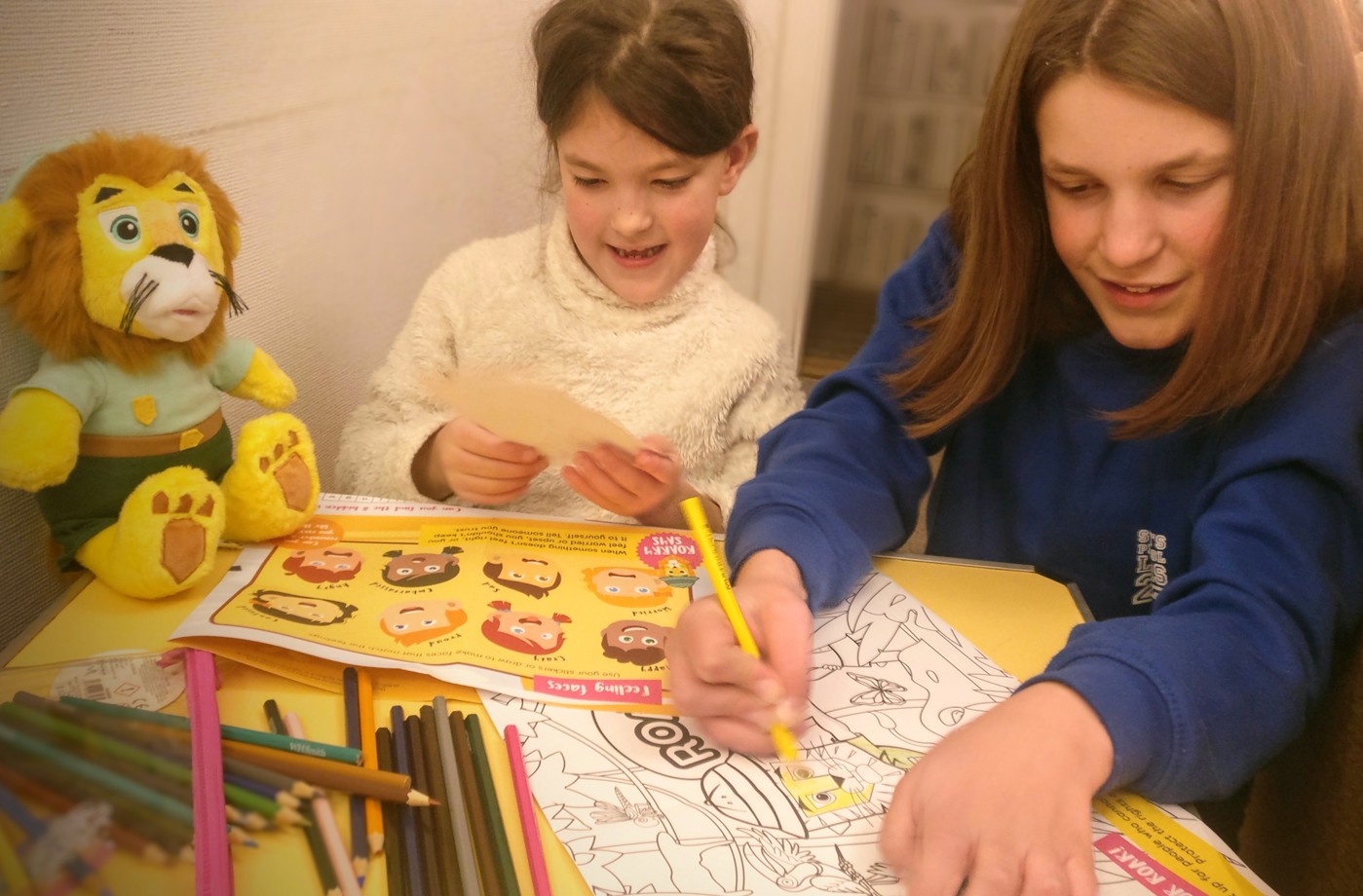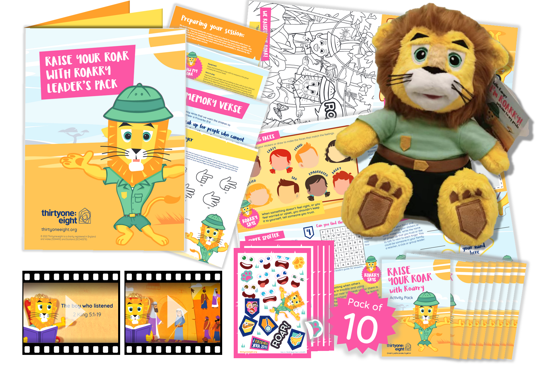
Image credit: Thirtyone:eight/Peter Wright
Peter Wright, Head of Communications at Thirtyone:eight, has been leading the development of our new child-friendly educational safeguarding resource – Roarry! We caught up with him to find out more about Roarry’s story.
What gaps do you see in safeguarding awareness for children?
Children have the right to live free from the fear of harm and abuse. In settings and environments such as schools, who have had to learn the hard lessons of the past, this is already largely the case. But outside of school, in sports clubs, youth clubs and church settings, how can we ensure children are being kept safe at the same levels we have come to expect in other areas?
The final report from the Independent Inquiry into Child Sexual Abuse (IICSA) in England and Wales examined the responses of a broad range of institutions and organisations to allegations of child sexual abuse over a seven-year period. It acknowledged that “discussions about child abuse remain an uncomfortable subject for many,” but that “those conversations are part of society’s collective duty to ensure young people are well informed and can navigate the risks of abusive and exploitative relationships.”
Thirtyone:eight has been working with churches, faith-based organisations and charities for over 45 years, so we know the challenges well. To create environments that are safe for all requires everyone to have an understanding and awareness of the part they each can play, including those whom safeguarding is designed to protect.
Children need to know that they can, and should, speak up when they feel worried, frightened, or unsure about something, know who they can speak to, and that they will be listened to and believed. These are important lessons for children to learn, and all settings should have these as part of raise awareness around safeguarding.
The recommendations from the IICSA report conclude that “empowering children and young people to talk about [abuse] and opening up discussions between them and a broad range of adults, is essential,” but as an adult, knowing how to do this confidently with children can feel daunting. Where do you start? What do you include? How do you ensure you use language that children will understand?
Children’s workers have been asking us for help to effectively communicate the messages in an appropriate and easy to understand way and wanted a range of high-quality resources they could use to do this.
How did the idea for the Roarry educational resource come about and who are these resources for?
Although some materials already exist to support children’s workers to teach children about speaking up, there is a gap in provision for resources that specifically address issues of harm and abuse in the context of Church or a Christian faith context.
With our knowledge and insight into the needs of these groups, we wanted to create a complete session plan that could be adapted for use with children aged 4–9 and that was flexible enough to suit a variety of settings and timings and that delivered the content in a fun and informative way.
At Thirtyone:eight we’re driven and motivated to create safer places for all by our Christian faith, which is core to all we do. Central to that is the biblical mandate of Proverbs 31:8 from which we get our name. This encourages us to “Speak out on behalf of the voiceless, and for the rights of all who are vulnerable,” which is where we started.
To help communicate this message we created the character of Roarry the Lion, a friendly and trusted guide, helping children to navigate the dangers and learn important skills such as how to raise their voice, their “roar” and speak up when things aren’t right. The lion is a familiar image to Christians, associated with wisdom and of God himself and personified by characters such as Aslan from C.S. Lewis’ Narnia books.
Drawing on stories from the Bible where children have spoken up or spoken out about issues and injustice, we wanted children to learn that the Bible shows us that God wants us to use the voice he has given us to speak up for ourselves and others.
We've been working with a focus group of children's and youth workers to help us develop the resources and help us make them as easy to use as possible.
How and where do you see this resource being used?
We’ve created the resources to be flexible so that they can be used in a variety of settings and session formats. This includes, but not limited to, Church Sunday morning sessions, mid-week groups, uniform groups such as Cubs and Rainbows, children’s clubs, home-schooling and family settings.
A perfect time to use it would be during a church-wide focus on safeguarding such as during a Safeguarding Sunday event where the whole church can be considering the same issues.
The resource pack contains a mixture of games and activity ideas, craft and learning, and story-telling videos, all designed to make it easy to share the central messages to the children.
What is the main message you want children who use this resource to take away from it?
Roarry’s Rangers know how to keep safe by following the Ranger Code. The code gives children four key points to remember and take away. These are:
- When I feel worried or upset, I won’t keep it to myself.
- I will raise my roar and speak to someone I trust.
- I know which grown-ups I can go to for help.
- I will use my roar to speak up for others.
In other words, “Raise your roar”! Throughout the session the raise your roar theme is repeated so that even the quietest child will be able to know it’s okay to roar.
To keep safe or to alert adults to issues that may need to be looked at, children need to know that they should speak out, but they will also need help to show who, within their own setting, are safe people they can speak to. This resource helps with that too.
One children’s worker said about the resources, “The children in our group loved it. It fed in well with messages about identifying emotions and naming them that they hear at school but placed it in a biblical context. There's a lot to love about Roarry!”

